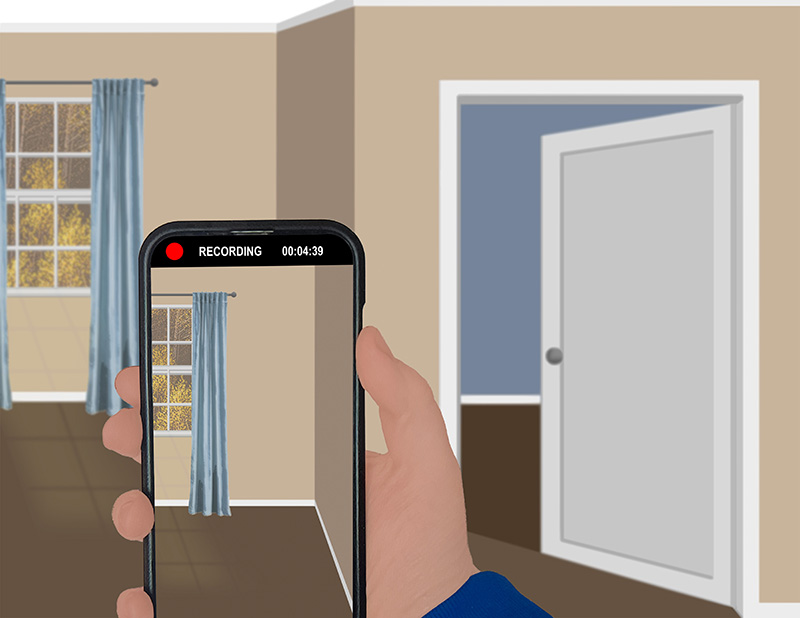How to Close on the Purchase of an Occupied Multifamily Rental Property
| . Posted in News - 0 Comments
By Kimberly Rau, MassLandlords, Inc.
You’ve found your perfect property. You’ve done your due diligence on it, conferred with your attorney, who is well-versed in landlord–tenant law, and made it through the offer stage. You’ve signed the purchase and sale agreement, with all of its contingencies, and you’ve scheduled a closing date.

Successfully negotiating the terms of your multifamily purchase takes a lot of work, but it will be worth it to have a smooth closing day. (Image License: Unsplash)
Closing day arrives, and you sign a mountain of paperwork before becoming the official new owner of your investment property. While closing may go by in a blur, there are a few things to which you’ll want to give special attention.
In this article, we’ll cover our top tips for closing on a property, as well as offer some advice on how to smooth the transition with your tenants.
Closing: Make Sure all Fees and Taxes are Current for the Property
As of this article’s publication, real estate closings are still done in person, as opposed to over Zoom. You, your agent, and the seller and their agent, and everyone else involved in the property’s closing will meet to sign paperwork and officially transfer the property to you.
When you get to closing, the seller should be able to prove that the water, sewer and taxes are up-to-date for the property, and any arrears have been paid off. Conversely, the arrears can be transferred to you, with the seller crediting you for them by discounting the purchase price. While you don’t want to do this with security deposits (more on this in a moment), it’s an acceptable alternative for any outstanding property taxes, or water/sewer fees.
If there are condominium or homeowner’s association fees attached to the property, make sure those are paid up as well, or similarly credited to you.
Closing: Make Sure Security Deposits and Last Month’s Rents are Correctly Transferred to You
Security deposit law is complex in Massachusetts, and easy to mess up. Since the seller will be transferring all security deposits to you, you need to start off right.
First, avoid “adjustments” to the sale price that credit you with the security deposit. This leaves you without cash to make the deposit on behalf of the tenants (remember, the security deposit never belongs to the landlord). It also makes it easier to forget to make the deposit.
Instead, list the security deposits as an expense for the seller on closing documents, then have your attorney write a dedicated check (or checks) to you. You can get one check for each unit that includes each unit’s balance and interest to date. If you receive one large check that covers all units, you should also get a breakdown that reports each unit’s balance and interest. Make sure you get the conditions statements that go with those deposits! Then, after closing, you can put them into appropriate accounts under the tenants’ names, just as you would any other security deposit.
If the seller collected last month’s rent from the current tenants, handle those payments in a similar manner.
Closing: Collect the Current Month’s Rent, and Make Sure Utilities Are Paid
Before you arrive at closing, you should have discussed that month’s rent with the seller. It’s in the seller’s best interest to collect rents before closing, because anything collected after closing will go solely to you.
Whatever rent is collected before you take ownership of the property, you can have the amount adjusted at closing to reflect who gets what portion of the rent (for instance, if you close on the 15th, you may decide to split the rent).
The same rule applies to any utilities the renter pays the landlord.
Closing: Receive Your Rental Property Assignments and Any Outstanding Notices
The assignments at closing are the things you will be taking over as the new property owner and new landlord. There will be legal forms or legal wording for each important document on which the seller is named that assigns their right, title and interest to you as a buyer. These should have been negotiated as a contingency, and include leases and other rental agreements.
It’s important to do this because the original agreements will have the seller’s name on them, not yours. You need documentation that the rental agreements have been assigned to you and are now under your control. It’s possible you’ll never see or speak to the seller again once you leave the closing.
If there are any unexpired notices to quit on any of the rental units, these should also be assigned to you. Any agreements for judgments in the seller’s name may or may not be included as part of the sale. However, the seller may also agree to sell them to you, as judgments are good for 20 years, and someone may be able to collect on them one day.
What to Do After Closing on the Rental Property
Now that the property is officially yours, the real work begins. Don’t get rid of any of your paperwork from the closing. You may never need to reference it again. But if an issue does come up – for example, a tenant alleges problems with their security deposit – you’ll have everything in writing.
Security deposits are on a 45-day timeline.
Speaking of security deposits, you have 45 days from the date of closing to get them into properly established accounts, and to verify and pay any interest due to date (General Law Chapter 186 Section 15B (5); search for “forty-five”). While you’re at it, take care of accounting for the last month’s rent payments, if you have any.
You have 90 days to fix any lead issues.
After you close, you’ll have 90 days to get into compliance (even interim) with the lead law, so start working on that right away (CMR 460.100 Section B). Hopefully, you really investigated what needs to be done to the property during the offer stage, and have prepared your tenants if you will need them out for any amount of time to do remediation work.
Code compliance is an ongoing obligation
As for code compliance, you have to meet it at all times. If the seller disclosed things that were not up to code, and you agreed to fix them after the sale, you must do so now. If you are uncertain what needs to be done, schedule a walk-through with the building inspector, and make a list to work on. Nothing will make your residents happier than seeing that their new landlord is proactive and willing to provide them with a safe dwelling.
But before they can laud you for your proactivity, your new tenants have to meet you.

Not sure if everything in your new multifamily is up to code? Do a walk through with the building inspector and document everything you need to fix. [Image License: CC by SA 4.0 MassLandlords, Inc.]
How to Start Off Well with Your Renters
In a perfect world, your new renters had plenty of notice about the ownership/landlord changeover, and you’ve already met at least some of them prior to the sale. Regardless, notify them of the official changeover yourself, and do so in a friendly way. You might write a letter introducing yourself, which could also include your contact information, as well as any projects you are planning to start around the property. Hand deliver it to each unit, and try to get to know your renters. This is also a good time to give them notice that their security deposit has been transferred into your care.
It seems like there’s a lot to do to get things running well, and there is. But there are also some things you should avoid doing right away.
Tread lightly with changes to the lease.
If there are things in the old rental agreements that you want to change, typically, you will have to wait until the lease period is up to do so. An alternative is to offer each tenant the chance to terminate their old agreement and sign a new one.
This can earn you points with your renters if you take the right approach, but it can also panic more skittish residents. Our advice is to let the current agreements stand until it’s time for renewal. Then, you can start with a MassLandlords lease, and add things such as online rent collection and new terms so renewal dates fall when you’d like them to. If the old owner allowed smoking, you can put in non-smoking clauses. For everyone’s sake, add in a nice long required notice period for move-outs or lease termination. We suggest 90 days.
When you renew the lease, you can raise the rent to keep pace with inflation, but don’t go crazy. If you’re not sure what to do, we cover this, along with many other situations, in our Level 1 Certified Massachusetts Landlord™ program.
Don’t raise the rent too much, or too fast.
If the residents have been paying a rent rate well below market, raising the rent to match market rates is going to come as an unpleasant shock. It will be even worse if you do it as soon as the lease is up. Your tenants may retaliate by refusing to pay, costing you a mint in attorney’s fees and lost rent, and then you still have to wait on the eviction, possibly for months, and find new renters.
Instead, gradually raise the rent over a period of lease renewals, sticking to increases that match inflation. If one of your renters moves out, then you can feel free to list the unit at market rate for the next tenant.
A Good Attorney is Worth Every Penny
If your attorney did a good job with your real estate transaction and was good at navigating the many landlord–tenant issues that come with occupied property sales, don’t abandon them after the closing. An attorney who is well-versed in rental housing issues can help you with a many things in your tenure as a landlord.
Attorneys who know rental law well can help you terminate old agreements and draft new ones. They can also help you deal with any surprises that come up, either as a direct result of the property sale or issues that happen down the road. Maybe one of your tenants insists they always pay their rent 30 days late, and tells you to take it up with the prior owner if you have an issue. Maybe one of the units actually has 10 people living in it. Perhaps someone is keeping a peacock in the unit and is claiming it is an emotional support animal. Attorneys can help with all of these issues, and it’s better to have someone in mind before problems come up.
Conclusion
Buying occupied rental properties is not like buying or selling an owner-occupied single-family, but it can be very rewarding, especially if you are prepared for everything that goes into the process. Part of that is your due diligence while the sale is being negotiated. But part of that is also going to happen when you meet your renters and get off on the right foot with them.
It’s a lot to consider, but we’re here to help. Becoming a Certified Massachusetts Landlord™ is one way to make sure you’re up to date on landlording best practices, and it’s something we recommend for all our landlords. If you have questions, email us at hello@masslandlords.net.





